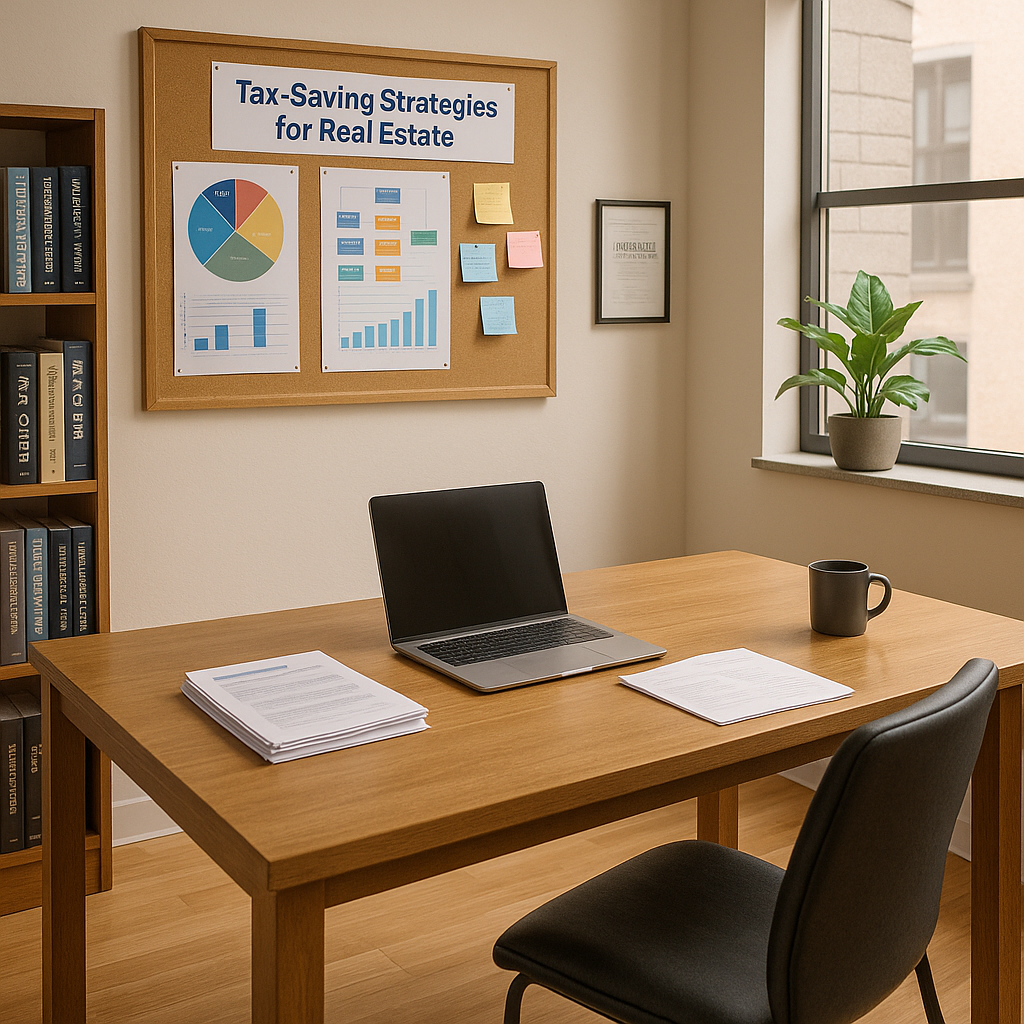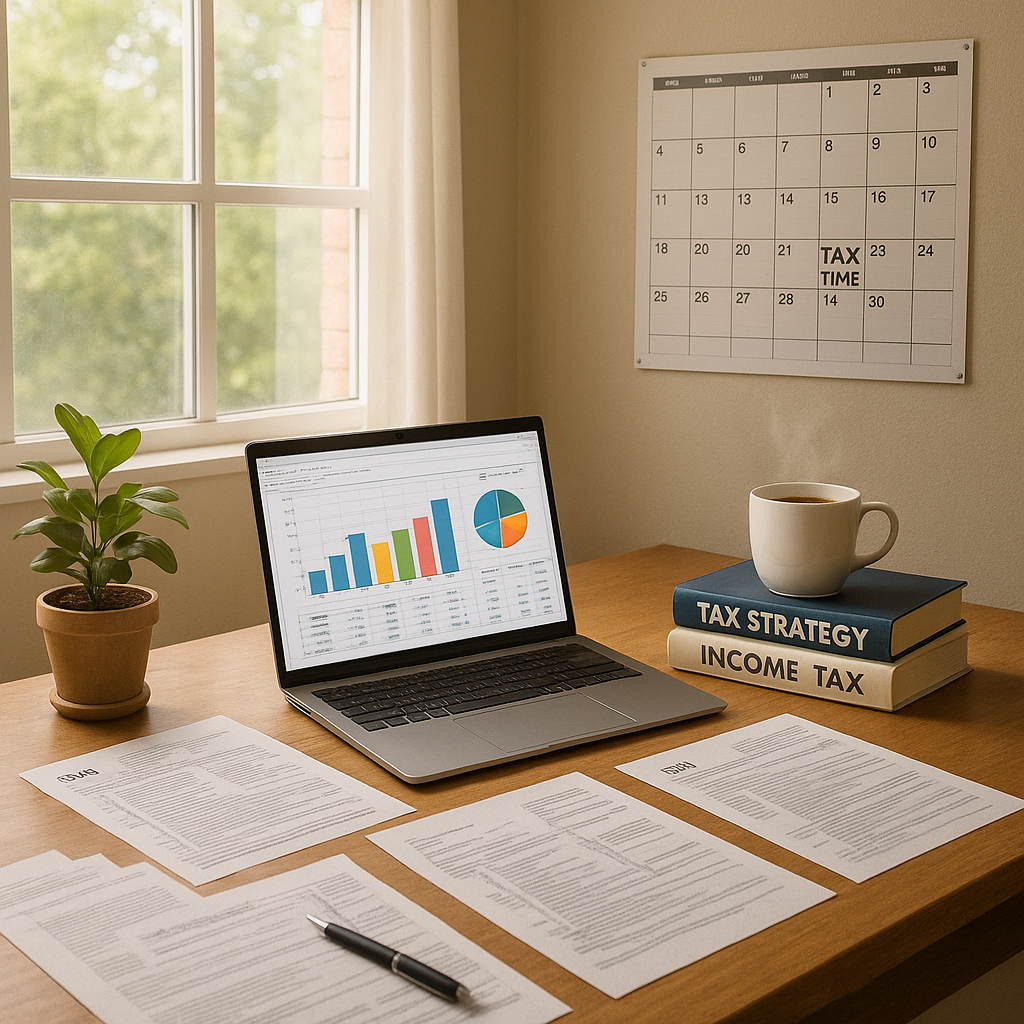
7 Factors to Consider When Choosing Between Self-Prepared and Professional Tax Filing
We asked business owners how they choose between preparing their own taxes and hiring a professional. Here are their responses, each shaped by experiences that influenced their current method. Some owners emphasized the importance of saving money and feeling in control, opting to handle their taxes independently after learning the basics and gaining confidence through trial and error. Others pointed to the complexity of tax laws or past mistakes as reasons for turning to experts, sharing stories of missed deductions or penalties that convinced them it was safer and more efficient to hire a professional. Together, their different perspectives offer valuable insight into the factors that guide this important decision.
 Time Constraints Lead Business Owner to Tax Professional
Time Constraints Lead Business Owner to Tax Professional
I knew that self-filing taxes for my new business would potentially save me money, but two key factors encouraged me to let a professional handle them instead: First, starting a new business is incredibly time-consuming. I've been working long hours for months, and it'll be several more months before I can really step back. Hiring someone to do my taxes took one more task off my plate. My other big concern was making sure my taxes were accurate and correct. Mistakes could cost a lot of money we simply don't have.
Wynter Johnson, CEO, Caily
 Professional Tax Help Excels Without Accounting Background
Professional Tax Help Excels Without Accounting Background
If you have an accounting or tax preparation background, a DIY approach to taxes may make sense. You can also get away with this as a business owner if you have a strong internal accounting department. Outside of that, though, you're almost always better off going with a professional. They'll be much better at managing deductions, collecting necessary paperwork, and making sure legal compliance doesn't get in the way of your success.
Jonathan Palley, CEO, QR Codes Unlimited
 Strategic Rental Property Tax Plan Maximizes Deductions
Strategic Rental Property Tax Plan Maximizes Deductions
My best play for short-term rentals is a coordinated "Renovate - Dispose - Accelerate" plan. We write down the parts we'll be taking out roof, HVAC, windows, flooring, cabinets, choose a Partial Asset Disposition so we can write off the cost of what we throw away, and then we order a cost segregation study to speed up the depreciation of what we put in 5-, 7-, and 15-year property. If the owner really participates in the STR, the activity can be considered non-passive, which means that the accelerated deductions can be used to lower ordinary income with some rules about basis and at-risk. In simple terms, construction becomes a tax strategy that brings deductions forward while the listing is growing.
When I can, I'll look into deconstruction donations so that salvaged materials can be used as a charitable deduction instead of going to the landfill. I buy FF&E with room-level invoices to use the de minimis safe harbor when it's appropriate. For big envelope/mechanical upgrades, I look into energy-efficient home credits with third-party certification and stack local utility rebates. None of these are flashy, but when you put them all together, they lower the interest rate on the money we were going to spend anyway.
If you want to roll gains, keep track of hours and decisions to prove material participation, keep an eye on the average stay to keep STR treatment, and model depreciation recapture on exit with a ready 1031 exchange path. The math only works as well as the papers.
Chad Phillis, Founder & CEO, Checkmate Rentals
 Complex Revenue Streams Warrant Professional Tax Preparation
Complex Revenue Streams Warrant Professional Tax Preparation
The decision rests on complexity and opportunity cost. In years when revenue streams were straightforward, self-preparing taxes with reliable software was sufficient and allowed close oversight of every detail. However, after expanding services and adding multiple vendor relationships, the volume of deductions, compliance considerations, and reporting requirements made the process significantly more time-consuming.
One filing season in particular revealed missed deductions related to equipment depreciation, which a tax professional later identified. That experience shifted the approach to using a CPA for complex years, ensuring accuracy and maximizing legitimate deductions. The retained time and reduced audit risk have outweighed the service cost, making professional preparation the preferred choice when operations reach a certain scale.
Wayne Lowry, Founder, Best DPC
 Audit Experience Prompts Switch to Tax Professional
Audit Experience Prompts Switch to Tax Professional
Deciding whether to do your taxes yourself or hire a professional usually depends on how complicated your finances are and how confident you feel about understanding tax laws. At first, I did my taxes on my own using online software because my finances were simple. But one year, I got audited because I accidentally reported a deduction incorrectly, which caused a lot of stress and extra work. That experience showed me how helpful it is to get expert help, especially since tax rules can be confusing and change often. Since then, I've chosen to hire a professional who can handle these complexities, find deductions I might miss, and make sure everything is done correctly. I still use software for simple filings, but I rely on professionals when my financial situation gets more complicated. This approach has saved me time and worry, and I feel more confident knowing my taxes are done right.
Matthew Ramirez, Founder, Rephrasely
 Financial Complexity Determines Tax Preparation Choice
Financial Complexity Determines Tax Preparation Choice
I decide between self-preparing my taxes or hiring a professional based on the complexity of my financial situation each year. For simpler returns, like filing for just a few deductions, I feel confident doing it myself using software. However, when my tax situation involves multiple income streams, investments, or changes in business deductions, I prefer to hire a professional. One experience that influenced my approach was when I tried doing my taxes solo during a year I had stock options and business expenses. Despite using tax software, I ended up missing a few key deductions and had to amend my return, costing me more time and money. Since then, I hire a CPA during complex years. Their expertise not only saves me stress but also ensures I maximize deductions and avoid mistakes, making the extra cost worthwhile.
Nikita Sherbina, Co-Founder & CEO, AIScreen
 Freelancing Complexity Converts DIY Taxpayer to Professional
Freelancing Complexity Converts DIY Taxpayer to Professional
I used to go back and forth every year about whether to do my taxes myself or hire a professional. The decision usually came down to complexity. If my situation was simple—just a salary and a few deductions—I felt comfortable using tax software. But the year I started freelancing on the side completely changed my mind.
That year I had multiple income streams, business expenses and even a small international client. I tried to do it myself with software but I was spending hours second guessing deductions and stressing over if I was filing correctly. Out of frustration I finally hired a professional accountant who specialized in small businesses. What stood out wasn't just the accuracy but the way she explained deductions I hadn't even thought of—like part of my home internet and certain travel costs. She also helped me structure things better for future years so I'd save both money and headaches.
That experience convinced me to use a hybrid approach now. If my taxes are simple I still do them myself to save costs. But when life gets more complicated—freelance projects, investments or big financial changes—I see a professional as an investment not an expense. The peace of mind and potential savings far outweigh the upfront fee.
So my rule of thumb is this: if the risk of missing something outweighs the cost of help I bring in an expert. That's worked for me.
Sovic Chakrabarti, Director, Icy Tales
Ultimately, whether you choose to prepare your own taxes or enlist the help of a professional depends on your unique circumstances, comfort level, and financial goals. Listening to the experiences of other business owners highlights that there is no one-size-fits-all solution—what works for one person may not suit another. The key is to assess your own needs, consider the potential risks and rewards, and make an informed decision that gives you peace of mind come tax season.


